
by Feola McCandlish
Daisy First Aid
Would you know what to do if your child choked, swallowed something they shouldn’t have, hit their head, was burned, had a seizure or fell unconscious? Would you know how to recognise the early stages of meningitis or a severe allergic reaction?
No parent wants to think about their child being harmed; but unfortunately accidents do happen and learning essential first aid skills can make all the difference in an emergency situation.
What is first aid?
First aid is the immediate treatment given to a person before medical help arrives. Your first actions while you wait for an ambulance can make all the difference and can sometimes even mean the difference between life and death.
There is so much to think about when you have a baby and it’s understandable that first aid might not be at the top of your list – especially when you are sleep-deprived and trying to figure out how to keep your tiny human alive.
Learning first aid can be scary, particularly when it is our own children we are talking about, but it doesn’t have to be. Learning first aid with like-minded people in a relaxed and informal environment can actually be a lot of fun.
Perfect for pregnancy
Did you know you can do a first aid class when you are expecting? It’s safe to do during pregnancy and it’s something you can tick off that ever-growing list of things to do! Learn with your antenatal group, friends and family.
Choking
Lots of parents, understandably, worry about choking when they are beginning to wean their baby. Did you know that babies have extremely sensitive gag reflexes, which are there to help keep your baby safe from choking?
When a baby is weaning it’s completely normal to experience a lot of coughing, gagging and going red in the face. A common misconception is that you will hear a person choking but you won’t; severe choking is usually completely silent. Knowing the difference between gagging and severe choking is really important, particularly when you are about to wean your baby. If they’re coughing and going red in the face that’s a great sign, we can usually let them work it out themselves; if they’re silent and turning blue they need our help.
Doing a first aid class can put your mind at ease when it comes to weaning your baby so you can relax and enjoy the process (and focus on cleaning the mess!) and feel confident that you know what steps to take if your baby does choke.
Not just for babies
It’s not just babies who sometimes require first aid. Once your child is mobile, a whole new world will open up to them; it’s an exciting time for them and you! Young children love putting things in their mouths. Did you know this is for sensory reasons? They have more nerve endings in their mouths than they do in their fingers so they find out more about an object if they put it in their mouth! But this obviously poses a choking risk.
Once your child is walking, running and climbing it’s normal for blows to the head to become a fairly regular occurrence (at least, they are in our house!) Would you know how to treat a head injury? And would you know what signs to look out for in a serious head injury?
Learning vital first aid skills gives confidence to parents and other child carers so that they would know what to do in an emergency involving their baby or child. All it takes is two hours.
Daisy First Aid teaches award-winning courses to parents, expectant parents and children all over Sussex in homes and public venues. They also provide OFSTED compliant courses for teachers and childcare professionals in local venues and private settings.
For more information visit www.daisyfirstaid.com

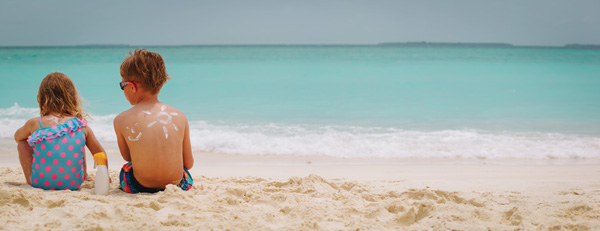

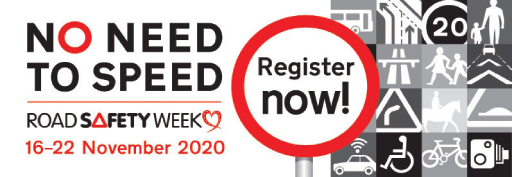
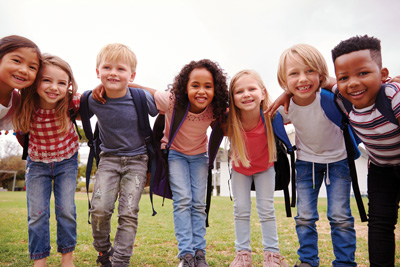
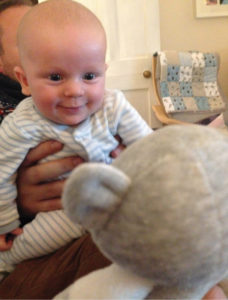 Once a baby is born they face a number of milestones, for example smiling for the first time and rolling over. We are told when their first tooth will appear and when they will have health visitor appointments but little is said about how their eyes develop and what their vision is like. At birth babies do not see as well as older children or adults. Their eyes and visual system aren’t fully developed, significant improvement occurs during the first few months of life.
Once a baby is born they face a number of milestones, for example smiling for the first time and rolling over. We are told when their first tooth will appear and when they will have health visitor appointments but little is said about how their eyes develop and what their vision is like. At birth babies do not see as well as older children or adults. Their eyes and visual system aren’t fully developed, significant improvement occurs during the first few months of life.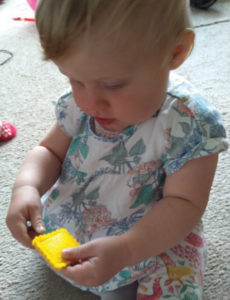

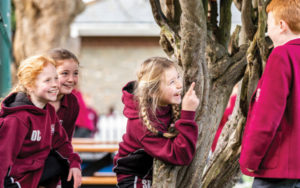 At our school, our children are driven by our ethos ‘Consideration Always’. As role models to the school community and beyond, we entrust them to develop and demonstrate the best version of themselves. Children develop when they are given the opportunity to do so. Mary Myatt’s philosophy of ‘high challenge, low threat’ leadsthe way.
At our school, our children are driven by our ethos ‘Consideration Always’. As role models to the school community and beyond, we entrust them to develop and demonstrate the best version of themselves. Children develop when they are given the opportunity to do so. Mary Myatt’s philosophy of ‘high challenge, low threat’ leadsthe way.
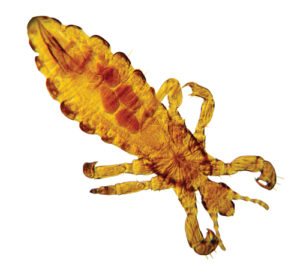 How to prevent head lice is a question often asked, with regular mentions of tea tree oil, however, there is not enough evidence to prove its efficacy, and it’s important to realise natural treatments can cause severe allergic reactions. I recommend that you stick to using a CE certified brand of head lice serum, meaning you can be sure it has been rigorously tested for safety and effectiveness. The following simple steps can help your family avoid an infestation:
How to prevent head lice is a question often asked, with regular mentions of tea tree oil, however, there is not enough evidence to prove its efficacy, and it’s important to realise natural treatments can cause severe allergic reactions. I recommend that you stick to using a CE certified brand of head lice serum, meaning you can be sure it has been rigorously tested for safety and effectiveness. The following simple steps can help your family avoid an infestation:









